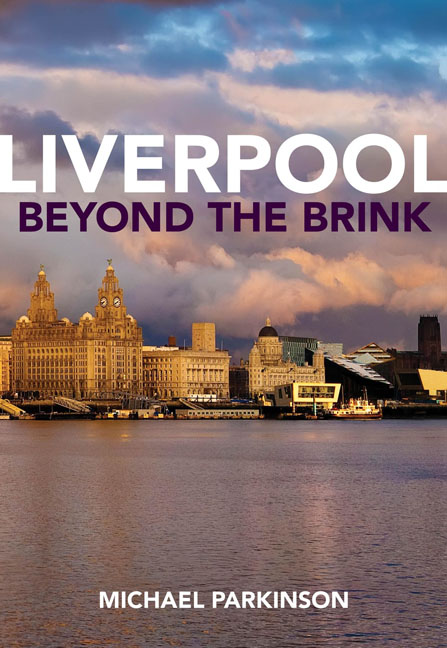Book contents
- Frontmatter
- Dedication
- Contents
- Acknowledgements
- 1 What is the Liverpool story and why does it matter?
- 2 Liverpool goes on – but pulls back from – the brink, 1973–88
- 3 Liverpool begins to become normal, 1988–98
- 4 The rise of the aspiring premier European city, 1998–2010
- 5 Continuing ambition in an age of austerity, 2010–19 99
- 6 The state of Liverpool's economy today
- 7 Liverpool beyond the brink: what are the lessons and what is to be done?
- Index
7 - Liverpool beyond the brink: what are the lessons and what is to be done?
- Frontmatter
- Dedication
- Contents
- Acknowledgements
- 1 What is the Liverpool story and why does it matter?
- 2 Liverpool goes on – but pulls back from – the brink, 1973–88
- 3 Liverpool begins to become normal, 1988–98
- 4 The rise of the aspiring premier European city, 1998–2010
- 5 Continuing ambition in an age of austerity, 2010–19 99
- 6 The state of Liverpool's economy today
- 7 Liverpool beyond the brink: what are the lessons and what is to be done?
- Index
Summary
This book has tried to show how and why Liverpool has taken the path it has during the past thirty years. It has argued that the city has gone from being a bad news story on the newspapers’ front pages for all the wrong reasons to a good news story in the public eye for the right reasons. Given where the city was in the 1980s, it is extraordinary how far it has come and how much it has changed. The city, its leaders and people are more confident, more optimistic, more ambitious and more positive. The city has improved its performance on some of the economic fundamentals. It has seriously exploited its cultural and heritage assets to present a very different picture to the world, nationally and internationally. People are voting with their feet. After a dramatic decline, the city's population is growing again – up 50,000 in this century, faster than the nation in recent years and predicted to be half a million by 2020. It is also becoming younger and more ethnically diverse – a real break with the recent past. The mood music is far better than at any time since the 1960s and Beatlemania. Political relations have improved, particularly during the past decade. The different parts of the city have been gradually put together again physically. The post-imperial city is being remade.
‘We have turned the liner.’ – Max Steinberg, former chief executive, Liverpool Vision
But it's still not perfect. Too many places and people have not shared in the city’s renaissance. The social challenges are still big. Political relationships are much better but still need strengthening. The city's capacity to deliver regeneration is impressive, but its capacity to deliver economic competitiveness needs to be increased. And despite improvements, the city needs to do better on some of the key drivers of success. This final chapter pulls these threads together and does three things. First, it identifies some of the lessons for Liverpool, national government and a wider international audience about the city's renaissance. Second, it reflects on the contribution of the key players who raised the aspirations and ambition of the city. Finally, it identifies three key strategic challenges for the city as it tries to build on the progress it has made in the past two decades: productivity, people and place.
- Type
- Chapter
- Information
- Liverpool Beyond the BrinkThe Remaking of a Post-Imperial City, pp. 133 - 174Publisher: Liverpool University PressPrint publication year: 2019



